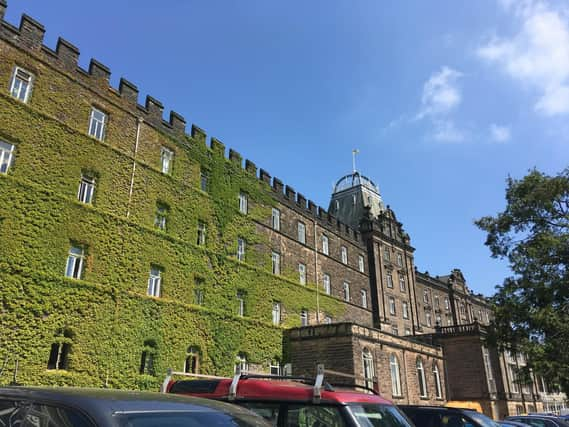High Peak food waste bag trial could be expanded to other areas


In January, Derbyshire County Council spent £3,338 – alongside High Peak Borough Council which put forward £4,651 – on rolling out a trial which saw two compostable food bags per week given to 7,000 households in Glossop and the surrounding area.
If these trials are successful, the scheme may be rolled out across Chesterfield, North East Derbyshire, Bolsover and elsewhere in the county.
Advertisement
Hide AdAdvertisement
Hide AdHouseholders in the High Peak have been able to place food waste in their garden waste bins – which are dark grey with a green lid – since 2009 but participation levels have been very low, says the county council.
This is due to residents finding the process “too smelly/messy”, not having the time or not seeing the point.
High Peak residents under the new scheme would use the compostable food bag to collect unwanted food waste in their kitchens, tie the bag off and dispose of it in their garden waste bin – which is collected every other week. This waste would then be separated at the recycling plant.
A report on the issue states: “Food waste is by far the single biggest waste stream in household waste bins.
Advertisement
Hide AdAdvertisement
Hide Ad“Derbyshire householders are placing over 57,000 tonnes of food waste in their general waste bins each year that the county council has to dispose of.
“This has a significant impact on the environment and the financial cost to the Derbyshire council tax payer is over £7.5 million per year.
“This ‘invest to save’ trial has demonstrated that, with strong public participation, it is possible to create environmental benefit, increase recycling rates and produce some modest disposal savings for the county council.”
Collected food waste is sent to the composting plant at Waterswallows in Buxton which is run by recycling firm Suez on behalf of the county council.
Advertisement
Hide AdAdvertisement
Hide AdSuez has been spreading the resulting compost on agricultural land in the Buxton area, replenishing farmland with nutrients and organic matter that reduces reliance on artificially-produced fertilisers.
Officers wrote: “The provision of two bags per week puts the project into a negative cost scenario for the county council, however, the provision of one bag should present some modest disposal cost savings when the bags and promotional materials are issued annually.”
Now the 12-month trial scheme will be rolled out to 7,000 households in Buxton and the trial in Glossop will be extended – with one free garden waste bag to be handed out to each participating household per week.
Rolling out the Glossop extension would cost £11,707 and the Buxton trial would cost £14,218 – a combined £25,925.
Advertisement
Hide AdAdvertisement
Hide AdHowever, overall the project is expected to save the county council £33,390 – a net saving of £7,465.
The report states: “The proposed expansion of the trial into the Buxton area will enable the Council to further understand household behaviour and commitment to this composting scheme.
“Furthermore, Suez is satisfied that contamination in the food waste stream is minimal and is happy to commence discussions with Chesterfield Borough, North East Derbyshire and Bolsover District Councils in regard to undertaking similar trials in those areas.”
The report said that this will be at no net cost to the county council and will enable assessment of food composting in these areas.